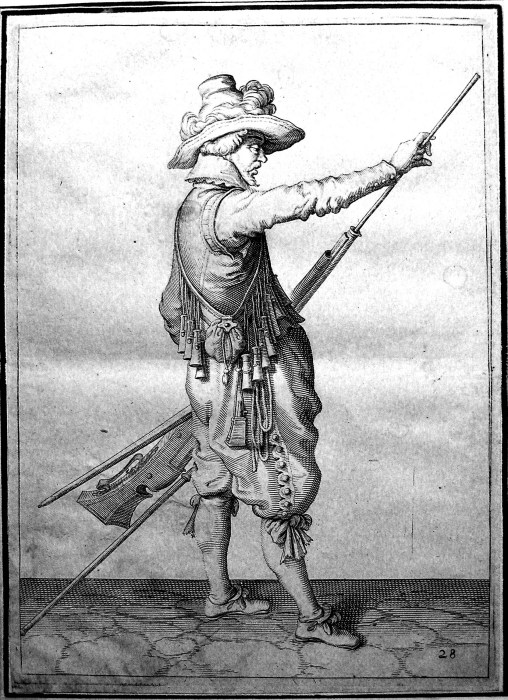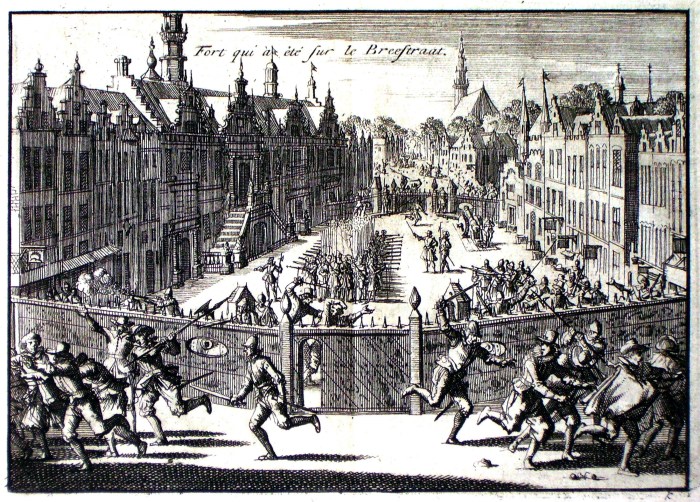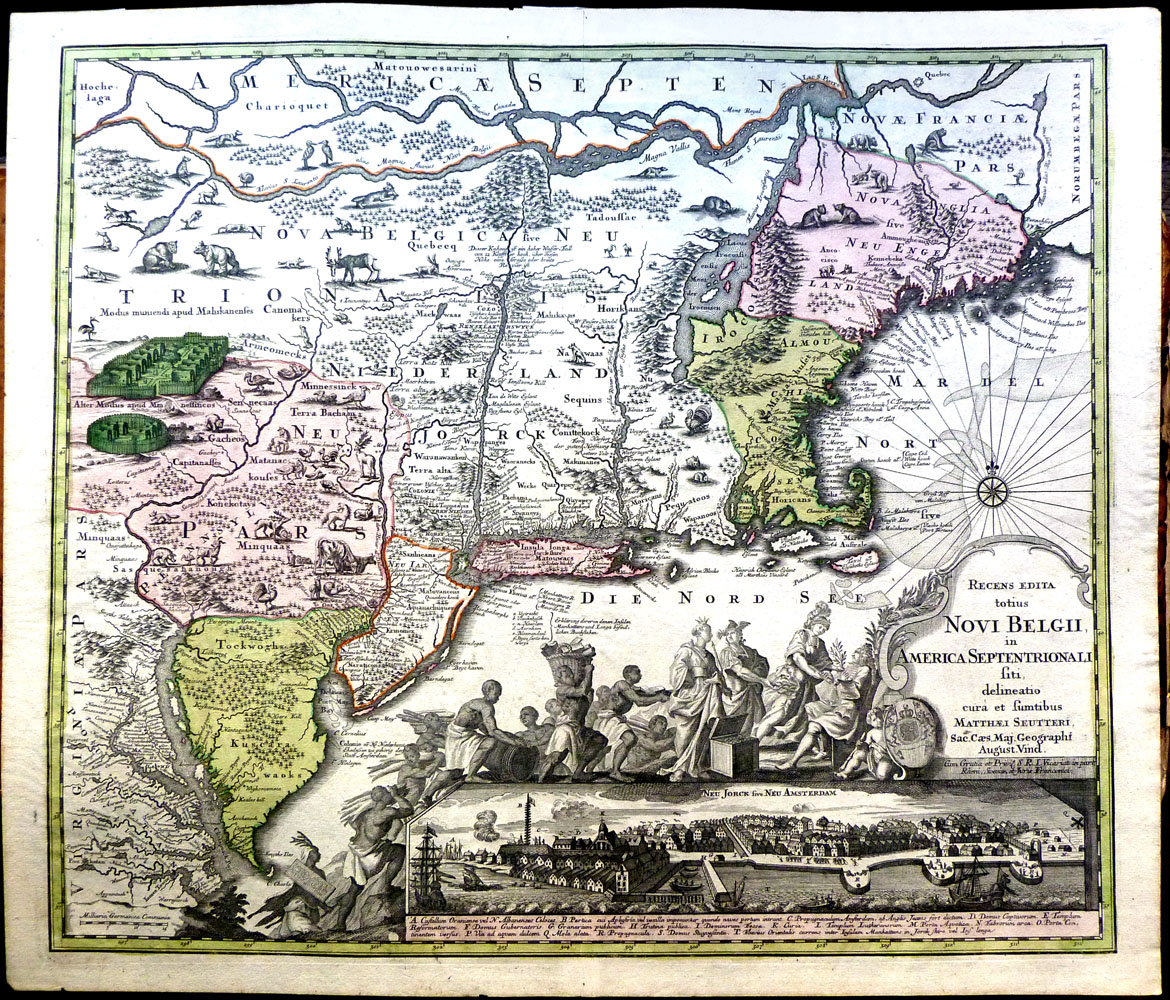William Bradford mentioned several complaints that contributed to the Pilgrims' choice to leave Leiden and embark on a dangerous sea voyage to an unknown, and in their opinion, unsettled land. First, life in Holland was so hard that few from England would come to join them, unwilling to subject themselves to a life characterized by "that great labor and hard fare, with other inconveniences, which [the Pilgrims] underwent and were contented with." Second, "old age began to steal upon them." Third, Bradford blamed the Dutch for the Pilgrims' oppressing even their own children, and not merely their servants, with excessive work. Even worse, he said, was that some of the children revolted, drawn by the bad example of Dutch children into loose behavior and leaving home. Another reason Bradford gave was that the Pilgrims wanted to try to convert the Indians (having had so little success regarding Sabbath observance with the Dutch). The English feared eventual assimilation. Finally, there was the fear of war.

With hindsight, our assessment of Bradford's reasons acquires subtleties beyond his simple statements. The Englishman's beer, bread, and beef could not be easily matched in Leiden. Only the wealthy ate major cuts of meat often, but what the English considered hard fare sounds healthy and tasty now; the poor made do with stews and soups, with what the English called roots (meaning parsnips, turnips, and onions), and with cabbage and cauliflower, lettuce, celery, fish, chicken, rabbit, and other such cheap stuff, including strawberries, of which Leiden was a production center.
The approach of old age can be connected with Bradford's famous complaint against conditions in Amsterdam, "they saw the grim and grisly face of poverty coming upon them like an armed man; with whom they must buckle & incounter, and from whom they could not flee." For those Pilgrims employed in the cloth industry, the total capitalism of Leiden's governing patriciate and of the leading Walloons, as yet subject to few ethical restraints, meant that housing, materials, and equipment were provided on loan or for rent by the entrepreneurs who had sole rights to the products. As long as one could work at a quick, youthful pace, employment was more or less certain, for a wage just sufficient to cover daily necessities, although short days in winter made for less income then. When one slowed down with age, employment could abruptly stop. Old age and poverty went hand in hand in the textile industry.
The Pilgrims had protected themselves on housing, for about twenty-five families, anyway, but more than half the congregation were not included in that protection. In 1619 a law was passed forbidding the collection of alms to support ministers, orphans, or old people outside the Dutch Reformed Church.
While this was aimed against the Remonstrants and was not enforced against the Pilgrims, the Pilgrim congregation's charitable activities for its minister, orphans, and old people were nonetheless hereby outlawed, as were those of other dissenters such as Catholics, Lutherans, and Mennonites. Partly as a result of these measures, eventual assimilation was indeed the future of the Pilgrim families who stayed in Leiden; now several hundred descendants of the Pilgrims who remained live in Leiden and nearby towns, all of them thoroughly Dutch.

Bradford faced the renewal of war soberly, remarking, "The 12 years of truce were now out, there was nothing but beating of drums and preparing for war, the events whereof are allway uncertain, the Spaniard might prove as cruel as the salvages of America, and the famine and pestilence as sore here as there, their liberty less to look out for remedy." Since 1609, Holland had changed from a peaceful land of prosperous industry, open to religious refugees with an unusual degree of toleration, to a place of riots, intrigues, military take-overs, imprisonment for matters of belief, spies of the expression of dissident thought, strict censorship, and all manner of military preparations for an imminent encounter with, and possible invasion by, the Catholic armies of the Hapsburgs of Spain and Austria.
Preceding a military coup, the old established authorities had sat uneasily, so much so that in Leiden the City Council hired mercenaries to protect the City Hall by guarding behind a hastily constructed barricade in the Breestraat, fearful of a popular uprising. All Pilgrims who were married in Leiden in 1617 and 1618 had to pass through a narrow opening in this stockade, with their witnesses and other friends, to reach the magistrates who registered betrothals. In 1619 Prince Maurits had the head of the civil government, Johan van Oldenbarnevelt, arrested; and a special count condemned the aged man to death. In a brief coup, Maurits marched with his army from city to city, disbanding the militias and removing all Remonstrants from civic office, replacing officials and soldiers with sycophants loyal to the new regime. The new sheriff in Leiden zealously pursued Catholics, Remonstrants, and Lutherans, extorting large sums of money in exchange for release of their leaders from summary imprisonment.

In June, 1619, a law was proclaimed forbidding all dissident religious services, declaring all contracts closed in them (marriages) to be invalid, and prohibiting all their independent collections for support of ministers or poor care. Robinson at this time went to some pains to stress his group's agreement, except on matters he considered indifferent, with the Walloons, who were tolerated as part of the Reformed Church. That summer one of England's bishops secretly visited Leiden, apparently taking part in the search for William Brewster that was part of the suppression of the Pilgrims' publishing activities. The English ambassador also came pursuing Brewster, and he was given an official welcoming banquet, despite the surreptitious assistance some officials gave to enable Brewster to escape. Such assistance could not be relied on to continue in such turbulent times. Decree followed decree, intending to catch all dissenters and to suppress political opposition.
The mood of the mob had become ugly towards minorities, and in April, 1619, Pilgrim James Chilton was stoned by a group of youths as he was on his way home from church, leaving him senseless in the street. True enough, he had been mistaken for a Remonstrant, but it was sufficient that he was not of the Dutch Reformed to arouse the suspicion of his attackers. The prospect of renewed help from England in the war against Spain was also threatening, because King James had promised the help on condition that he would have direct control over all the English congregations in Holland. Assimilation to the state church of either Holland or England was thus to be enforced. Leiden was no longer a haven for the dissident oppressed. Life among the savages, even reputed cannibals, might be safer!
The Pilgrim’s rich and exciting story deserves to be told in detail. You can discover different aspects of it in the following chapters.